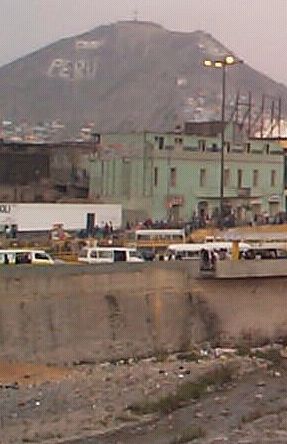|
Today's Opinions, Tomorrow's Reality
The Frontline of Free Trade By David G. Young LIMA, PERU, November 29, 1999 -- As thousands of activists rallied in Seattle to protest international free trade1, this frontline city in South America marched forward to prove that everything they believe is wrong. Ten years ago, Peru was a closed economy tightly controlled by the central government with huge import duties and severely limited free trade. The peasant "campesinos" were descending from the mountains by the millions, setting up slum housing in the hills near the capital to be close to the seat of power -- the place where the elite doled out the fruits of the economy like gifts from an overprotective father.2 The migration caused widespread environmental destruction in the hills and rivers around Lima, and led to severe societal decay. The closed system created an economy so stagnant that the campesinos took what was at times horribly destructive measures to try and escape their poverty. This closed market malaise was amply documented in the 1989 Latin American bestseller, "The Other Path," which greatly influenced the 1990 Peruvian elections that brought President Alberto Fujimori to power. Since then, markets have been opened, tariffs lowered, and Peru has joined the international economy with a grudging acceptance of limited free trade. Peru has advanced nearly a full point (on a five-point scale) of the Index of Economic Freedom since 1995.3 As a result of reforms, inflation has been virtually eliminated, giving Peruvians rich and poor alike access to credit, a wide selection of consumer products, and -- most importantly -- the ability to pay for them. Since January 1991, the Peruvian economy has grown by over 40 percent.4 A drive down the freeway leading out of central Lima shows a roll call of dozens of international businesses that have invested here as a result of the improved business climate. This economic resurgence has given the government and the people the resources to begin restoring the widespread environmental destruction caused by years of slum growth and irresponsible behavior of formerly state-owned industries. Such a fantastic success story of free markets and free trade shows precisely why activists who protesting the World Trade Organization meeting in Seattle are so wrong. The WTO should not be criticized because it is pro-free trade. It should be criticized for not supporting free trade enough. Opponents of free trade say that the opening of international markets has cost jobs and led to environmental destruction. The evidence shows that exactly the opposite is the case. Free trade creates huge numbers of jobs in poor countries where productive employment is most desperately needed. It only eliminates jobs -- in far smaller numbers -- in countries where people are working in inefficient industries that are best restructured for the good of the world. Those who protest free trade on the basis of job protection seek only to advance their own selfish interests at the expense of everyone else on the planet.
Likewise, it is not free trade but the desperate poverty caused by limiting trade that leads to widespread environmental destruction. Take, for example, the rainforest in Brazil. Its destruction is not led by multinational logging companies. Desperately poor peasants burn down the rainforest for farmland to feed their families. It is not international commerce that causes this problem, but lack of it. If the peasants had other opportunities in the Brazilian economy, they would have no reason to waste their time on such terribly unproductive farmland. It is free trade and free markets that create jobs so people don't destroy the environment. The perception of free trade as a source of environmental destruction comes from the idea that development is inherently bad for the planet. While it is true that development sometimes can cause pollution and wilderness destruction, development cannot be stopped. People will naturally seek to improve their lives. If they are not allowed to do it in productive ways -- like working for foreign-owned factories -- they will do it in far more destructive ways -- like burning down the Amazon or destroying the mountains and rivers around Lima. The protesters in Seattle who deny these facts are shortsighted and self-serving. It is not their vision, but that of the free-market, free-trade leaders in Lima that will prove the wave of the future. Notes:
|

